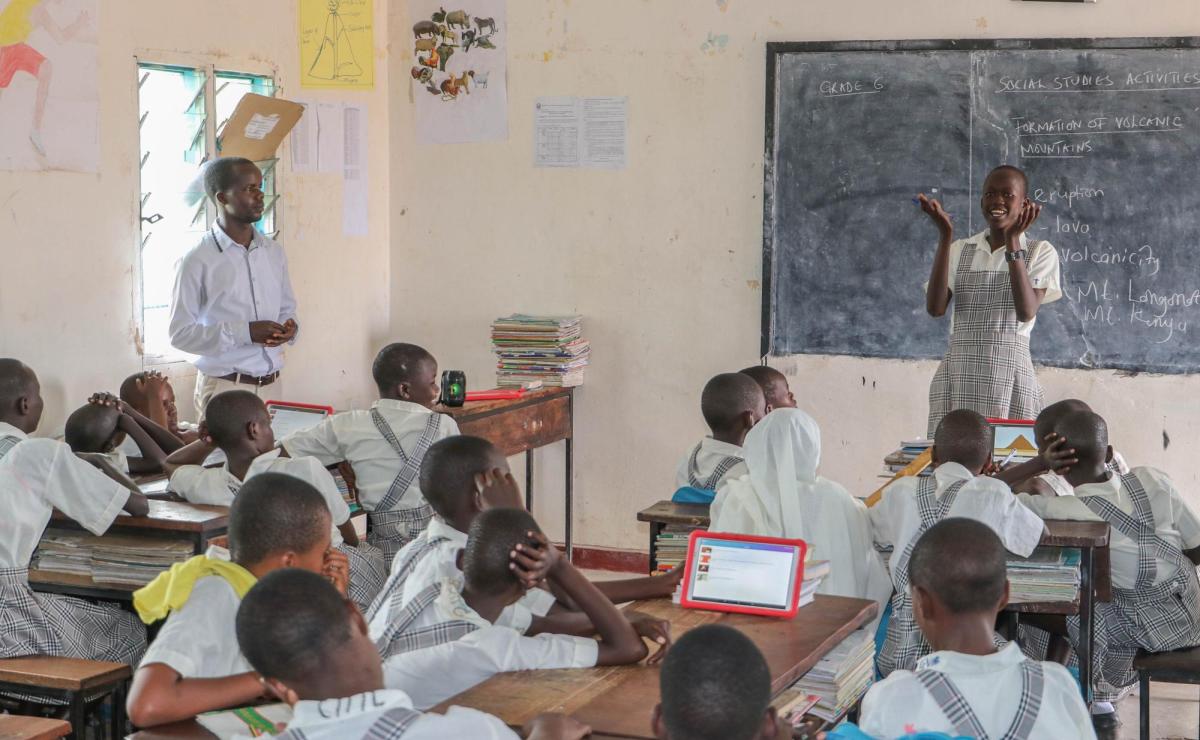Enhancing the Potential of Kakuma Refugee Communities Through Promoting Digital Literacy

The Kakuma morning sun is already up as young learners of Angelina Jolie girls boarding school settle down for their social studies activities lesson. Today, the grade 6 class, comprising of girls between the ages of 13 to 16, will be learning about volcanoes.
Mr Isaak Limo, a teacher at the school, begins by introducing the topic as the attentive girls strategically prop their tabs against stacks of textbooks. In a minute or so, the teacher transitions from the traditional or ‘text book’ studying to digital learning. He simply moves from pointing at the chart and text book pages to tapping on one of the instructional videos saved in the tablets.
It is amazing to listen to the young girls enthusiastically explain the benefits of digital learning. Kabuka Kaluka is a 14-year-old learner who says the introduction of tablets has made learning very interesting.
‘Today we have been learning about the process of volcanic eruption. Initially, textbooks would leave us imagining how such processes would occur but thanks to the tablets, we can now practically experience the processes through videos.” She explains amid claps from her fellow learners.
Mr. Limo says that the introduction of digital learning in the schools has not only made the learners become more informed but it has brought about a very interesting phenomenon.
'We are witnessing a race between learners and teachers in the acquisition of digital skills. I personally support the initiative because it has made learning very interesting. Besides, I no longer have to waste time drawing diagrams on the black board.'
A few kilometers away from the school, we meet 26-year-old Kwizera Mussa. She is a digital literacy champion known for her soft skills ranging from setting up smart phones, creating email accounts and multimedia content.
“Attending the digital competency training has opened my eyes to the world. I am now utilizing the skills acquired to earn a livelihood. I use social media to learn cooking skills and promote my cake baking business” She happily narrates.
The Lutheran World Federation Kenya Somalia Program through the support of MTÜ Mondo has been implementing a digital competency training targeting teachers and women groups from around the Kakuma refugee camp. This initiative seeks to enhance their skills while maximizing the value they get from digital technologies

